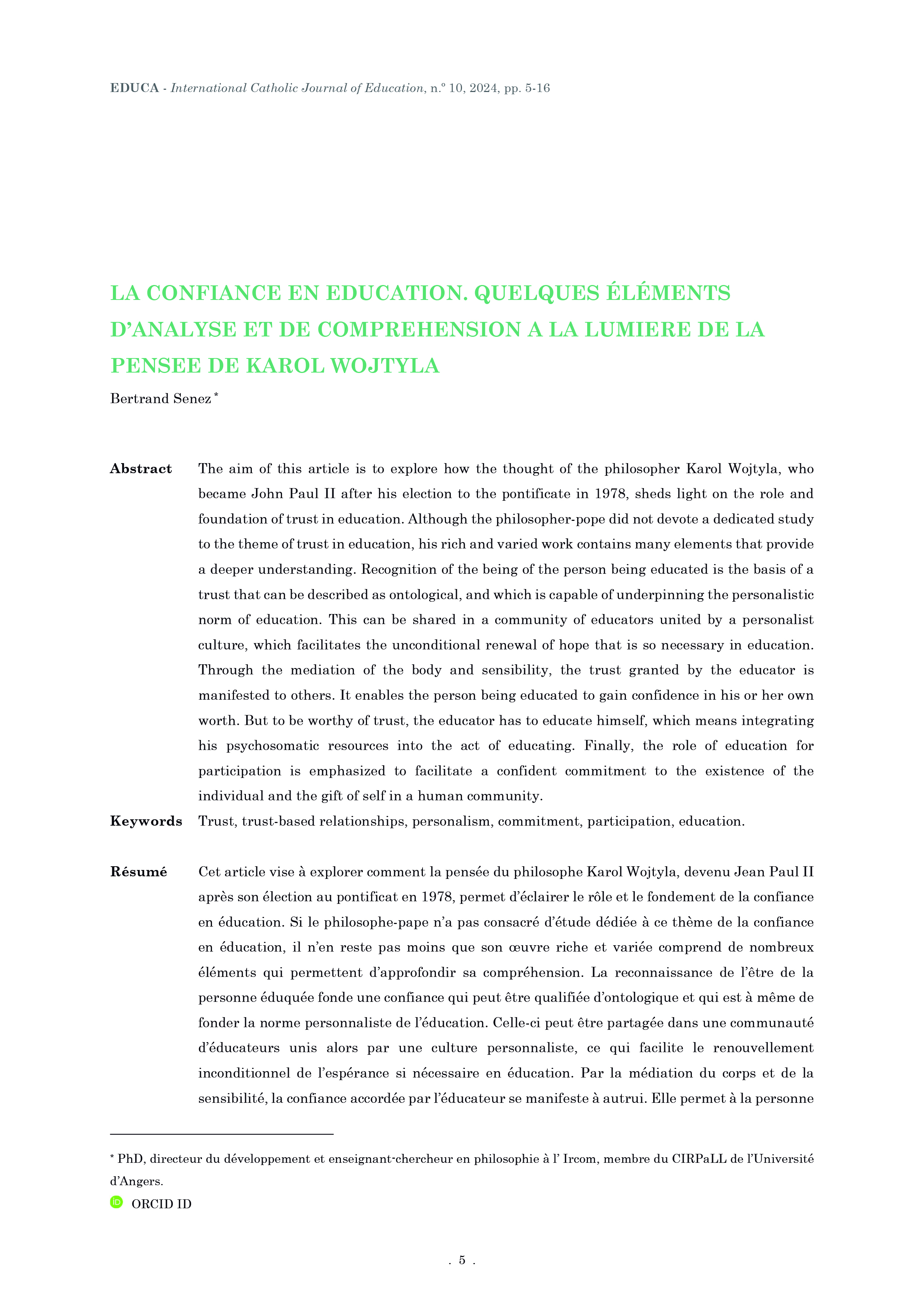La confiance en éducation. Quelques éléments d’analyse et de compréhension à la lumière de la pensée de karol wojtyla
Main Article Content
Abstract
The aim of this article is to explore how the thought of the philosopher Karol Wojtyla, who became John Paul II after his election to the pontificate in 1978, sheds light on the role and foundation of trust in education. Although the philosopher-pope did not devote a dedicated study to the theme of trust in education, his rich and varied work contains many elements that provide a deeper understanding. Recognition of the being of the person being educated is the basis of a trust that can be described as ontological, and which is capable of underpinning the personalistic norm of education. This can be shared in a community of educators united by a personalist culture, which facilitates the unconditional renewal of hope that is so necessary in education. Through the mediation of the body and sensibility, the trust granted by the educator is manifested to others. It enables the person being educated to gain confidence in his or her own worth. But to be worthy of trust, the educator has to educate himself, which means integrating his psychosomatic resources into the act of educating. Finally, the role of education for participation is emphasized to facilitate a confident commitment to the existence of the individual and the gift of self in a human community.

